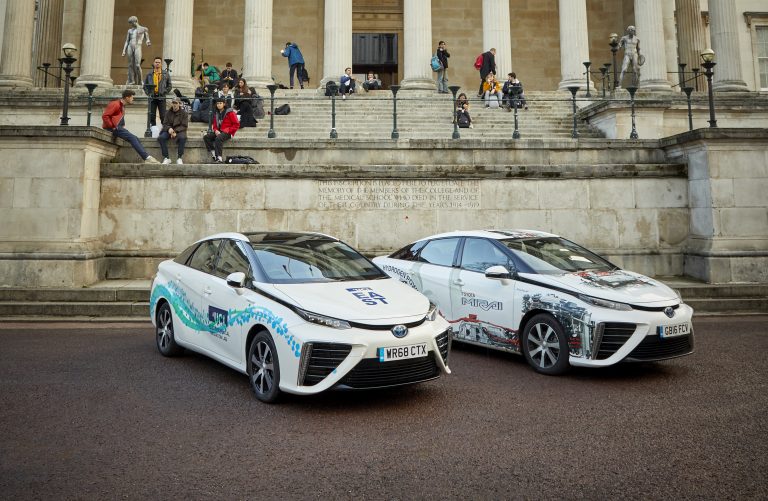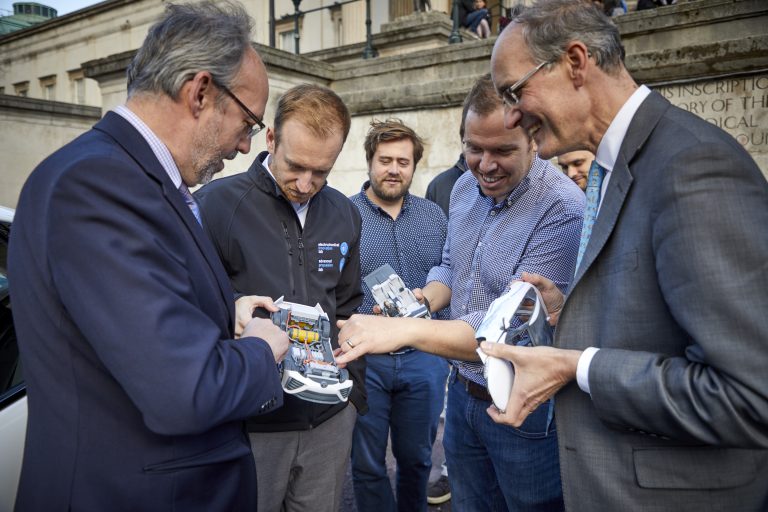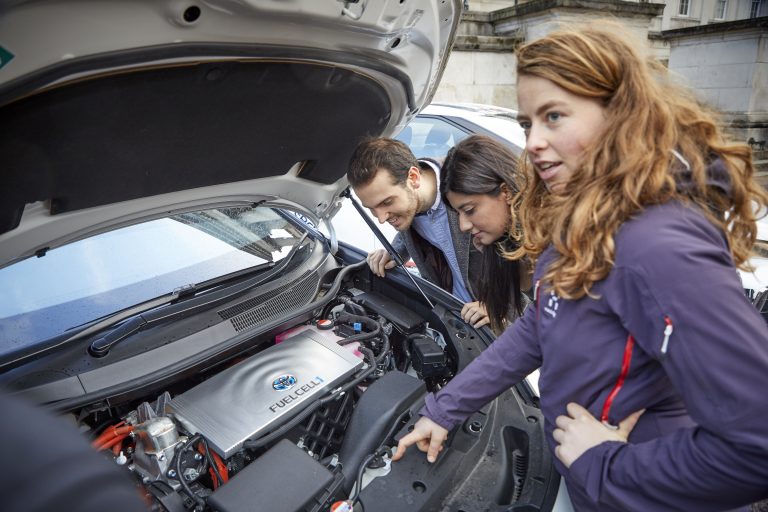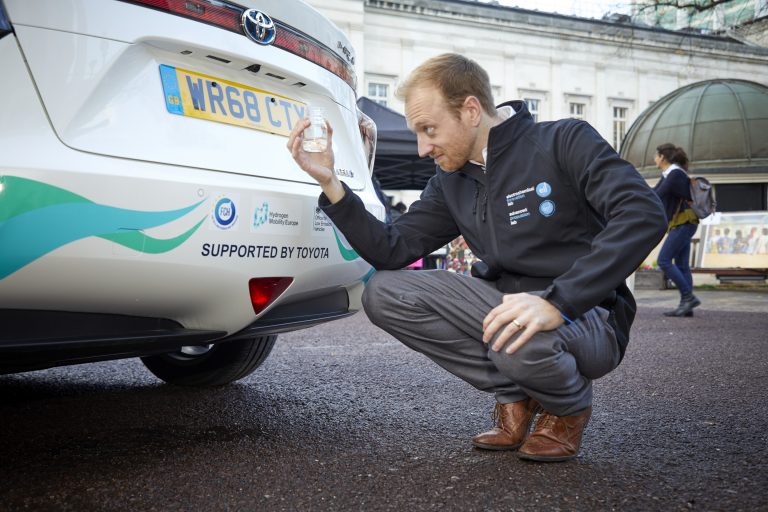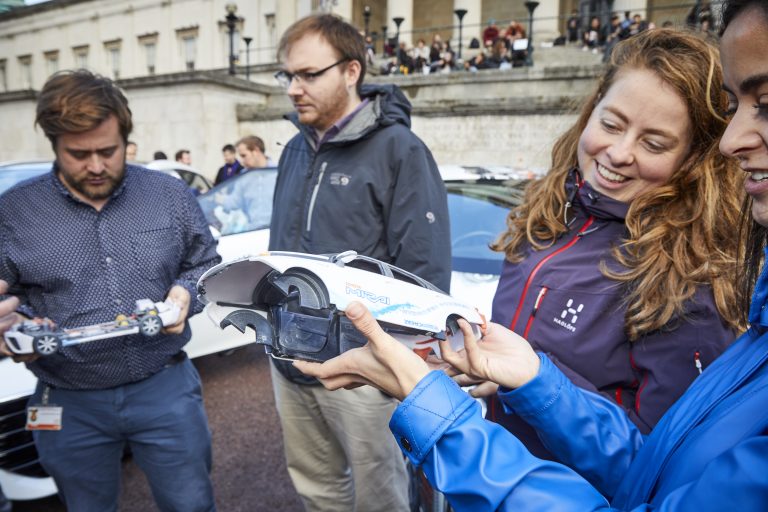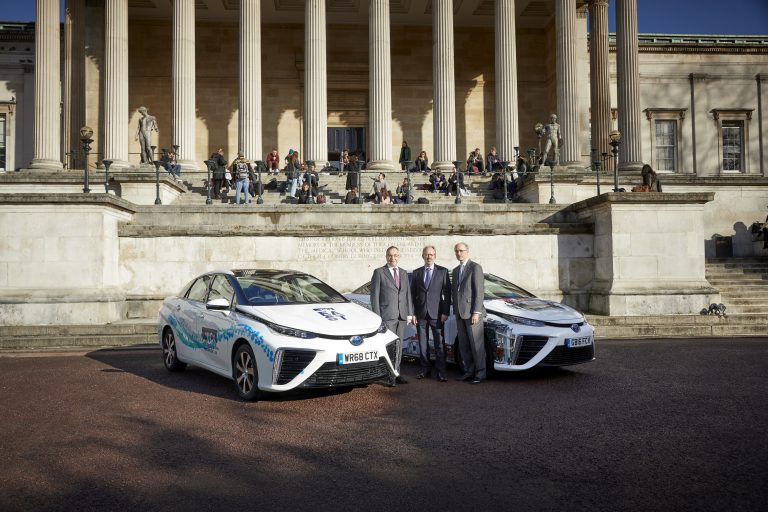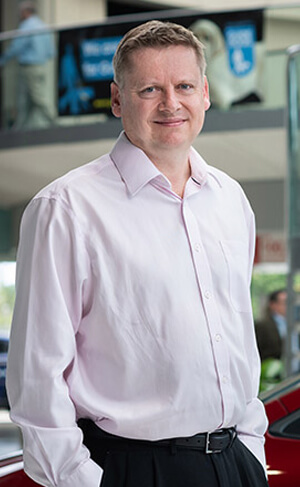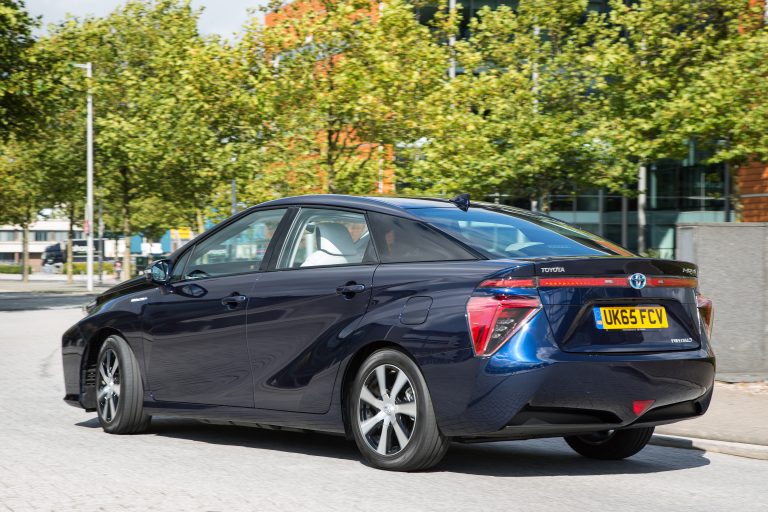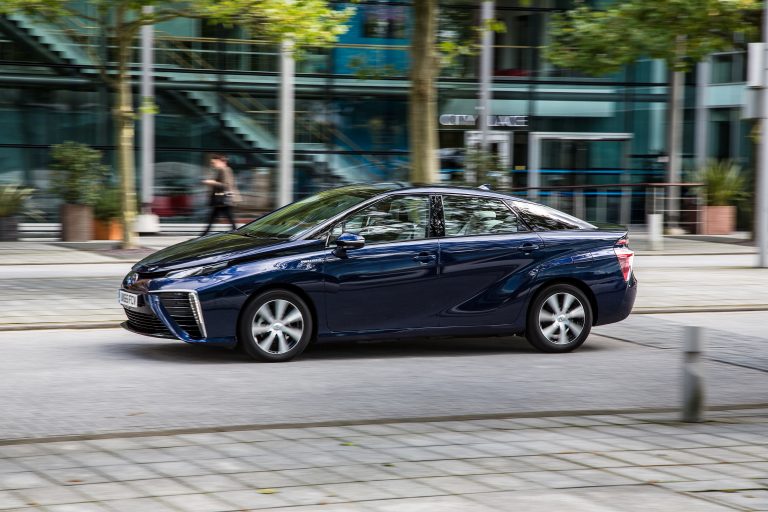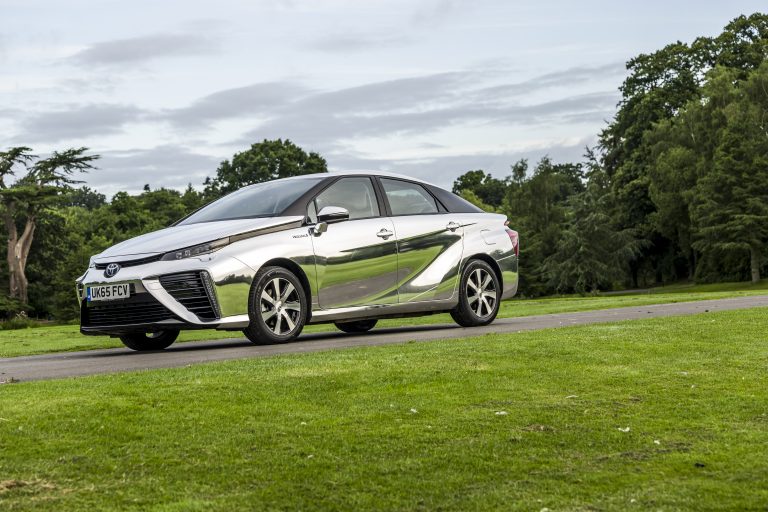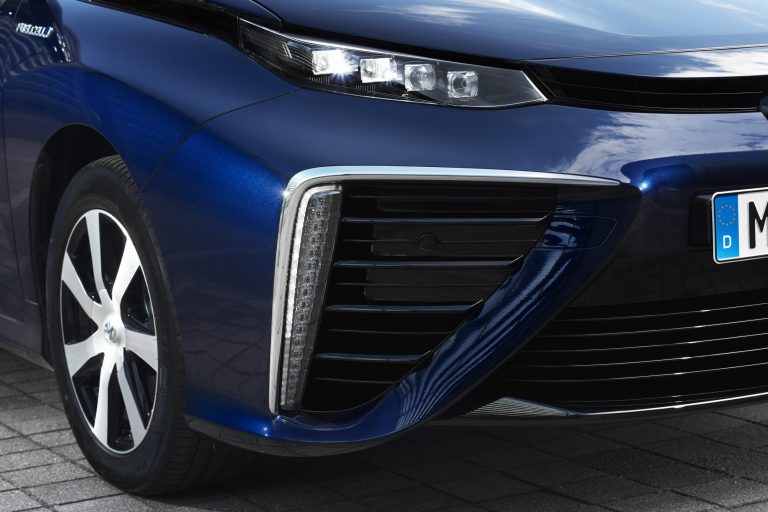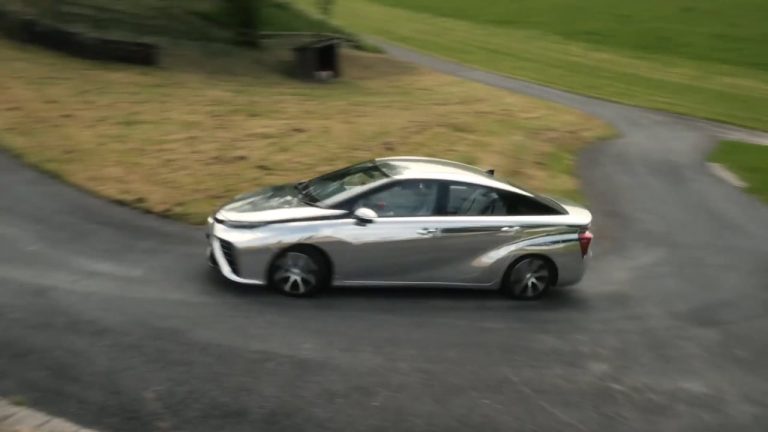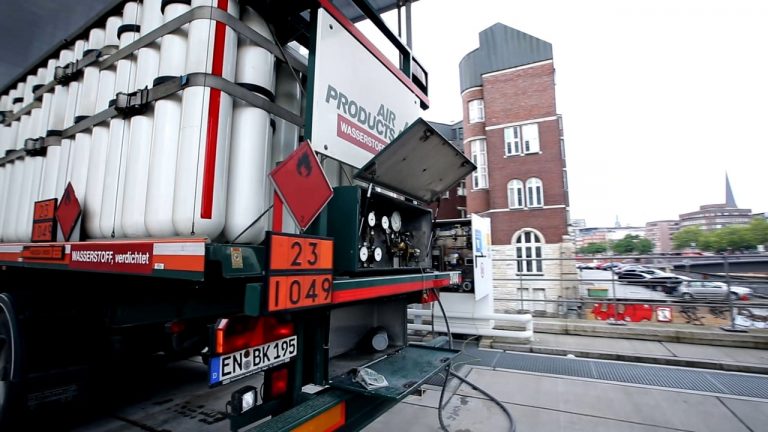UCL Takes Delivery of New Toyota Mirai Hydrogen Fuel Cell Saloon
University College London (UCL), one of the world’s leading multi-disciplinary universities, has taken delivery of a Toyota Mirai hydrogen fuel cell electric car to further its research into advanced powertrain technologies, and to serve as practical, zero emission transport for staff.
The Toyota has been acquired with support from the Office for Low Emission Vehicles (OLEV), Hydrogen Mobility Europe (H2 ME) and the Fuel Cells and Hydrogen Joint Undertaking (FCHJU).
The Mirai, the world’s first hydrogen fuel cell saloon, will complement the university in its studies into how fuel cells can be combined with new battery technologies. It will also be used by UCL staff to shuttle across London to and from the university’s base in Bloomsbury and its new campus, UCL East, in the Queen Elizabeth Olympic Park, which will open in 2021 and represents the largest ever single expansion of the university since it was founded nearly 200 years ago.
Dr Michael Whiteley, Head of Fuel Cell Engineering at the UCL Electrochemical Innovation Lab, was the driving force behind acquiring the Mirai. He said: “Our research into fuel cell technology shows it’s a serious alternative to fossil fuel cars. We’re excited to take delivery of our own Toyota Mirai fuel cell car on the UCL Quad and also at UCL East, where our new Advance Propulsion Lab will be based.
“We’ll be testing the car on London’s busy roads and using it to demonstrate the technology. The next stage of our work is to develop and evaluate hybrid, battery and fuel cell power systems for automotive applications, and having access to a fuel cell car will greatly enhance our position as a world-leader in fuel cell research and development.”
Paul Van der Burgh, Toyota GB President and Managing Director said: “We hope that the technological breakthrough we have made with Mirai will help a new generation of UCL-trained scientists discover how fuel cell technology might be used to shape the powertrains of the future. Toyota believes in the great potential of hydrogen as a clean, practical and plentiful source of clean energy and is keen to encourage and support research into how these benefits to society can be realised.”
UCL President & Provost, Professor Michael Arthur, said: “We’re delighted to be the first university to host a production fuel cell car. The technology could play a key role in mitigating climate change and it’s great to be at the forefront of this. The work carried out by the team in UCL’s Electrochemical Innovation Lab is key to developing fuel cell technology for the future, and the Advanced Propulsion Lab – to be homed at UCL East in Stratford – will help to cement us as the industry leader.”
The Mirai is powered by electricity generated on-board by a fuel cell stack through the process of combining hydrogen with oxygen. On a full tank of fuel it can cover around 300 miles, with smooth, near-silent running and producing no emissions other than pure water. The technology has proved its reliability and usefulness with hundreds of thousands of miles covered in the UK by cars in daily use with private hire companies, public bodies and private businesses.
ENDS

